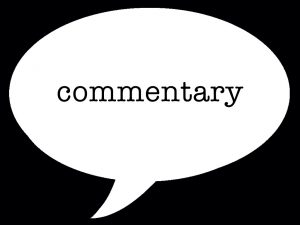
In the realm of social discourse, an underrated force sparks unity and facilitates advancement: sport – mainly soccer.
By Austin S. Fallah, A Nationalist and Advocate for the Best Liberia
Providing a platform for interaction, connection, and collective dreams, soccer has been woven into the fabric of communities worldwide.
This essayist focuses on the transformative role of
Soccer is a potent social adhesive in post-conflict Liberia. In this country, the love for the game serves as a melting pot, uniting people from diverse backgrounds, transcending social barriers, and fostering mutual development.
Growing up in the contrasting localities of Bong Mines and Monrovia, Liberia, offered firsthand exposure to the unifying potential of soccer.
Guns and conflict were replaced with the simple joys of a football game, the soccer pitch metamorphosing into a sanctuary for the young and the old.
Friends intermingled, rivals turned teammates exchanged jokes, and collective laughter echoed against the backdrop of the cheers of an enthusiastic crowd.
The familiar, controlling thread was the ball.
The language was soccer, and the conversation was about unity, aspirations, and a shared future.
Against this backdrop, the anti-development rhetoric was conspicuously absent.
The focus of arguments veered towards the ambitions of social and economic upliftment and dreams inspired by national soccer legends.
Soccer was not merely a pastime here, but it was a parallel universe where social hierarchies blurred, a place to dream, strategize, and work for a better future.
The rise of Liberian soccer legends like George Weah, James Debbah, Boy Charles, Zizi Robert, Mass Sahr Jr., and Joe Nagbeh, to name a few, onto global prominence fueled these dreams.
Each milestone in their sterling careers symbolized hope, achievement, and an impetus to the growing soccer enthusiasts of Liberia.
Rising from the dusty soccer fields of Liberia to the global Soccer dome was an encouraging narrative, uniting the youth in their aspirations.
Envy was replaced with admiration, rivalry with respect, and the collective pride of seeing fellow compatriots on the global Soccer scene bridged societal divisions.
Classic Soccer banter pervaded our daily discourse, fostering friendly rivalry.
Claims of ‘my team is the best,’ counterarguments of ‘your team is fe-se,(fe c)’ predictions of ‘we will beat you,’ or ‘you can play seh,’ permeated the air.
These exchanges were more than just about the game. They nurtured unity in diversity and inherent competition but with respect and camaraderie.
These fond memories beg the question. Where are those fun-filled, unity-driven days?
As times changed and professional soccer became increasingly commercialized and competitive, the social fabric attached to soccer appears to have frayed.
However, it is also time to rekindle the unifying fire of the sport in our societies. Liberians having such love and passion for the game gives it the power to, once again, act as a catalyst for societal unity, change, and development.
While the sport has evolved over the years, and countries worldwide have adopted different approaches to incorporate it into their social systems, the essence of soccer remains the same, transcending global barriers as a unifying force.
It is vital to use sports, mainly soccer, as a lynchpin to bridge societal divisions and foster a sense of belonging, unity, and advancement in Liberia.
It is not just about kicking a ball; it is about fostering a sense of togetherness, instilling peace, and working towards shared economic growth.
By leveraging the power and appeal of soccer, we can indeed unify people, reignite lost aspirations, and catalyze inclusive development.

